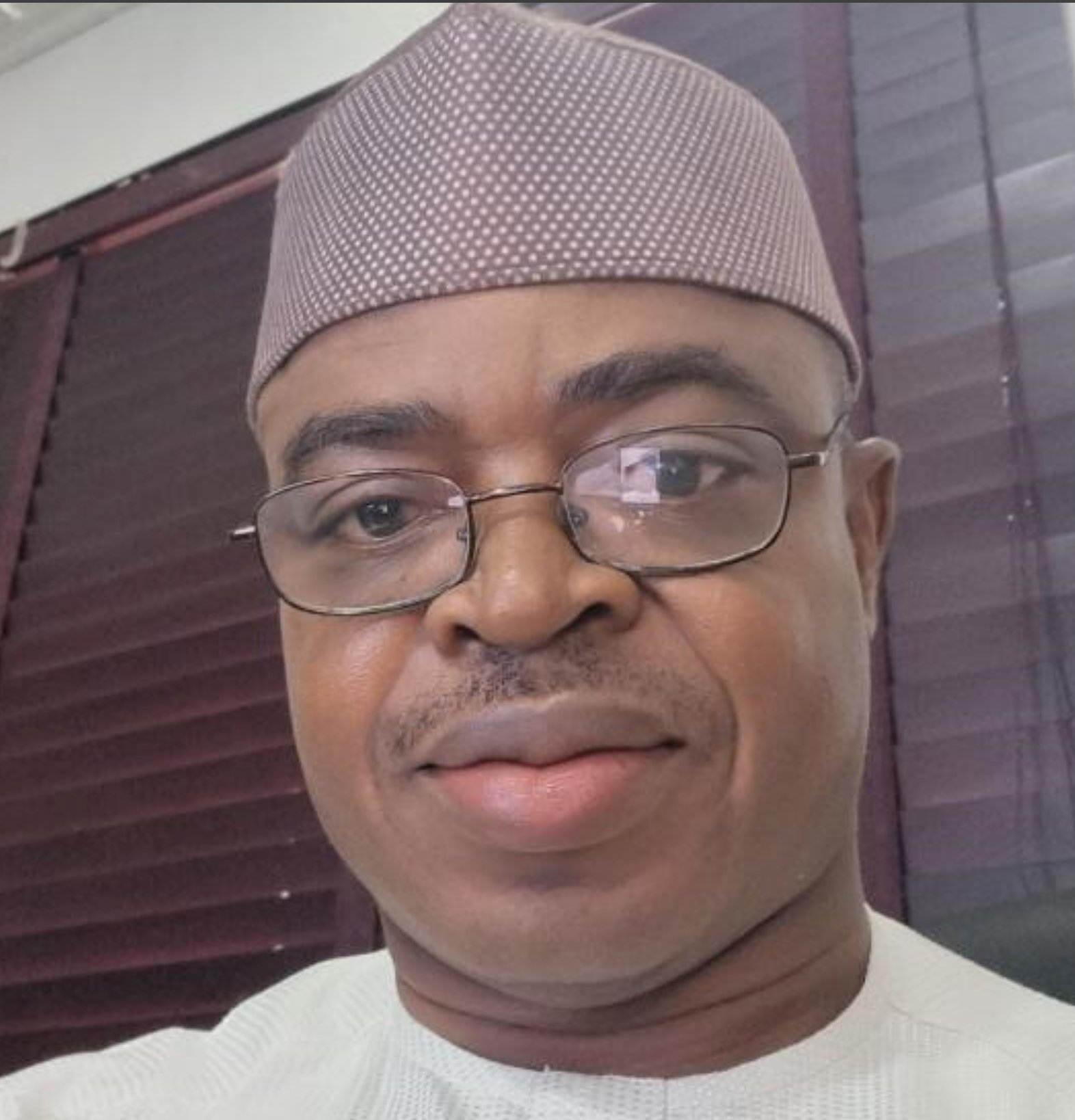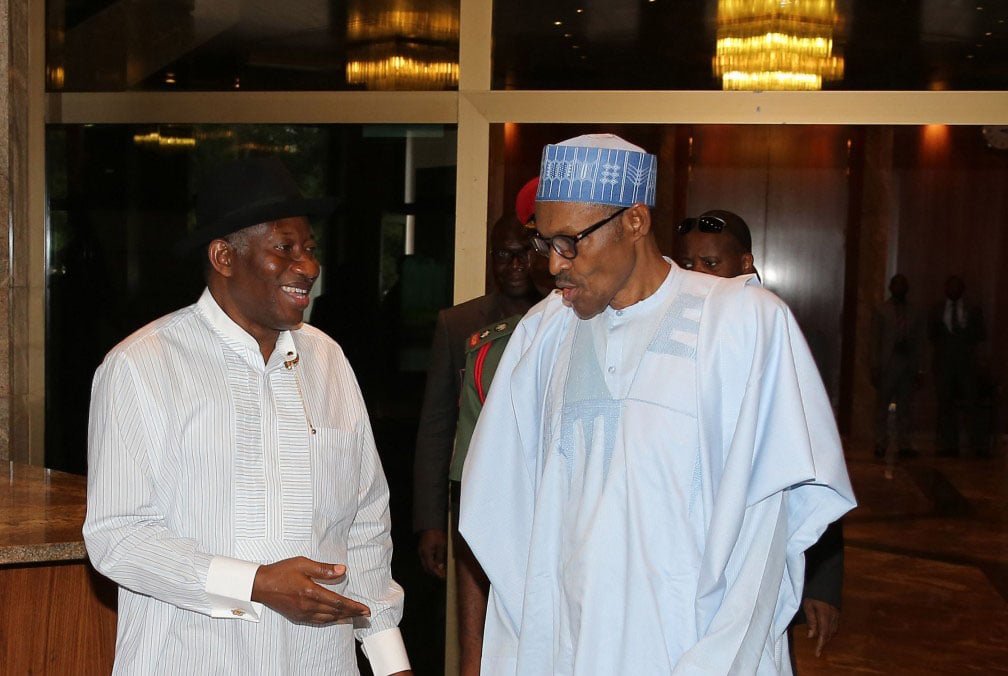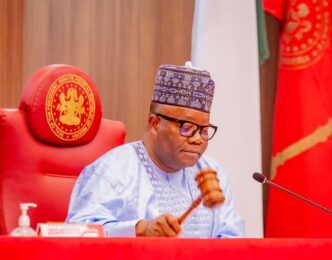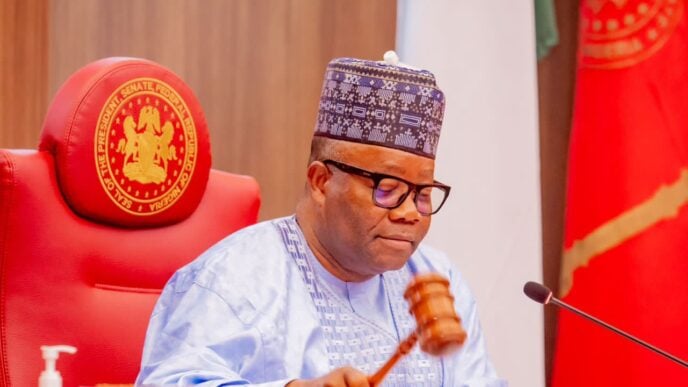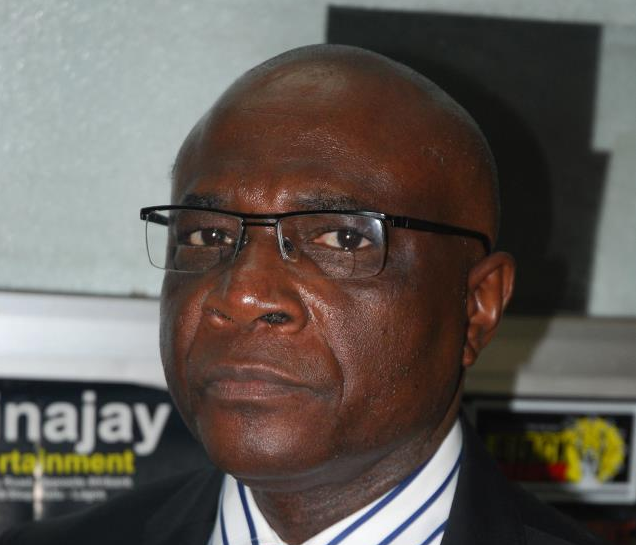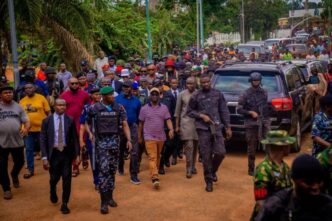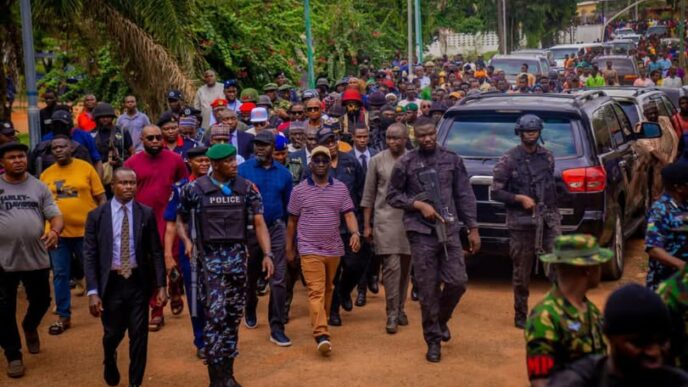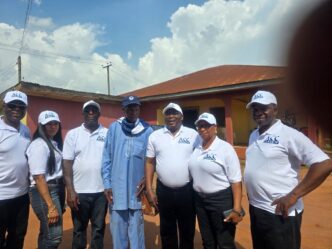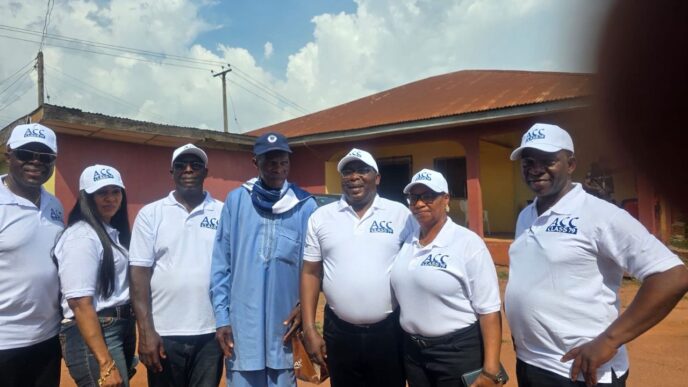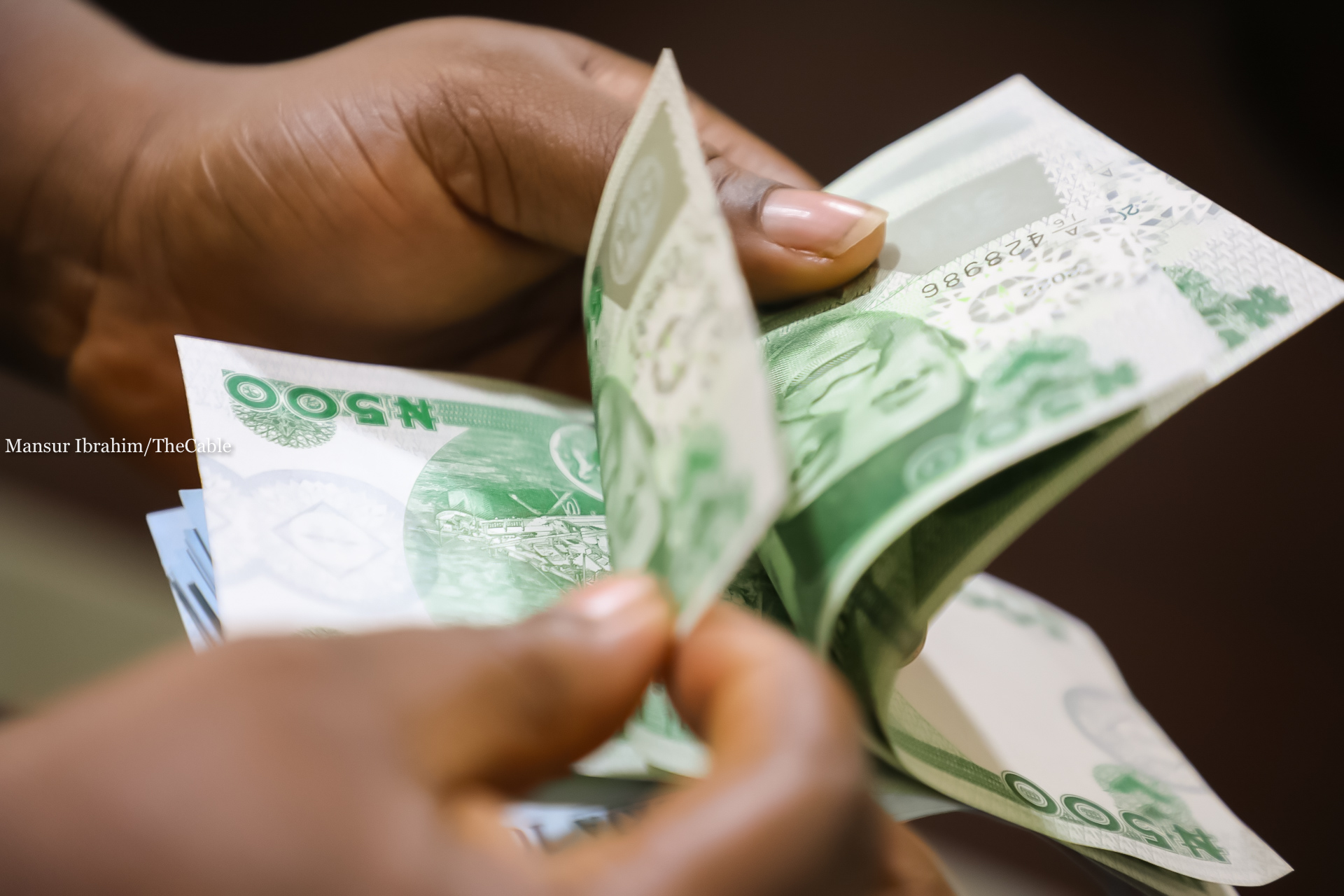In the annals of Nigeria’s political history, few moments stand out as defining turning points for democracy. One such moment occurred on March 31, 2015, exactly ten years ago. That was when then-President Goodluck Jonathan placed a phone call to his rival, Muhammadu Buhari, conceding defeat even before the final results were officially announced. Many believe that single act of statesmanship not only strengthened Nigeria’s fragile democracy but also sent a powerful positive message to the entire African continent.
The build up to that notable event was a tense and charged political atmosphere, one delicately tethered on a tinderbox. It will be recalled that Nigeria’s 2015 presidential election was one of the most fiercely contested in the nation’s history. Ahead of the elections tensions were high, with unprecedented saber-rattling and aggressive blustering across regional and religious divides.
While the results were being collated, supporters of some of the candidates were literally up in arms, threatening fire and brimstone. Fears of post-election violence loomed large.
This was coming on the back of recent experience of many African countries where cases of disputed elections led to chaos, coups, or civil strife.
Advertisement
The long wait for the final tally exacerbated the tension in the land and sparked national debate. Goodluck Jonathan is the genial, gentle, and selfless one. But will he cave in to the pressure from his party’s power mongers or defy the typical ‘win-at-all-costs’ mentality that had plagued African politics for decades?
However, in that tension-soaked moment on the appointed day, against the backdrop of a din of voices and divergent opinions from aides and close associates seated in his expansive living room in the State House, Jonathan quietly disappeared into his study, made peace with himself, his conscience and his God, and placed the historic call.
Instantly, his action calmed tensions across the country, preventing what could have been a bloody conflict between supporters of rival parties. His mantra “My political ambition is not worth the blood of any Nigerian,” resonated afresh across the nation and the world.
Advertisement
By his action, Jonathan proved that power is in deed nothing without control, and that real strength lies not with one whose naked ambition drives his nation to ruins but with the visionary leader who gives it all up to save his people.
At the official handover ceremony in the Executive Council Chambers in Aso Rock Villa, an elated Buhari had told the outgoing President, on the eve of his swearing in, that “since that famous telephone call you made, you have changed the course of Nigeria’s political history.” He went ahead to praise Jonathan for his selflessness and deep sense of patriotism, noting that his decision to concede defeat saved countless lives that would have been lost in post-election violence.
Nobody, perhaps, understood what fire was averted more than Buhari, especially after the grisly threat from his flank ahead of the polling that ‘both the baboon and the dog would all be soaked in blood.’ It is to the glory of God that it did not happen. That was because Jonathan served as the agent God deployed to save the country from disaster.
It was this carefully considered action that instantly shot up Jonathan’s image globally, a spotlight he magnanimous shared with Buhari as both of them made history being the first time ever in Nigeria that an opposition candidate had won an election against the incumbent, with both men displaying enormous goodwill for the historic transition. It proved to the rest of us that in our clime also, power could change hands without chaos, thereby reinforcing public trust in the electoral system.
Advertisement
It is quite telling that ten years down the line, the star of this momentous event has continued to be celebrated. Last Tuesday, President Bola Tinubu decided to give Jonathan fresh flowers for the heroic act. While congratulating the former President who has just been announced as the winner of the prestigious Founder’s Sunhak Peace Prize, Tinubu rightly referenced his “historic acceptance of the results of the 2015 presidential election and his peaceful handover of power “, noting that “the action bolstered the nation’s democratic profile.”
It is therefore people’s expectation that President Tinubu, as an acclaimed prodemocracy champion, and other leaders coming after him will, by their actions, continue to illuminate the paths of democracy in a manner that enhances the dignity of the citizens.
It may be convenient for some people to say, probably out of political mischief, that Jonathan had no other choice, having lost an election. Those who make light of the significance of the Jonathan doctrine seem to forget where Africa had been and where it was headed before the call. In a region where the hangover of military dictatorship still looms thickly on the horizon, and where incumbent leaders often cling to power with desperation, Jonathan’s decision to concede defeat was in deed a breath of fresh air. The fact that he chose to put the interests of the nation above his own, needs no gainsay. For that reason, Jonathan has continued to stand as a towering symbol of democracy, statesmanship, humility and peace.
Beyond Nigeria, Jonathan’s decision sent a powerful message across Africa. In the past, many African leaders had refused to concede defeat, leading to prolonged crises in countries like Côte d’Ivoire, Zimbabwe, and The Gambia.
Advertisement
However, in subsequent years, his action became a model for other African leaders, influencing peaceful transitions in countries like Ghana, Senegal, Liberia, Zambia and Botswana where defeated incumbents stepped aside without resistance.
Today, Jonathan’s action has become a case study in democratic maturity, inspiring hope that peaceful transitions were possible and desirable.
Advertisement
Although this is about the anniversary of this epic act, it is important to point out that Jonathan’s legacy cannot be defined by the call alone. His administration was one that exemplified inclusive governance, respect for democratic institutions and the rule of law.
Unlike many African leaders who appropriate critical institutions for personal aggrandizement or manipulate electoral processes to extend their rule, Jonathan reformed the process and allowed free and fair elections, even when the outcome was not in his favour. Under his leadership, the 2011 and 2015 elections were widely regarded as one of the most transparent in Nigeria’s history, despite challenges.
Advertisement
Jonathan also expanded political freedom by maintaining a free press and tolerated dissent. There was no Nigerian on political exile, during his time.
He promoted Youth Empowerment and Education by introducing key reforms including the establishment of new federal universities, the Almajiri education programme for out-of-school children in Northern Nigeria and the Presidential Special Scholarship Scheme for Innovations and Development (PRESSID), a programme designed to improve the technical skills of brilliant graduates and place them on the forefront of innovation and development.
Advertisement
He introduced an economic Transformation Agenda with which he repositioned Nigeria for unprecedented growth. Under him Nigeria became the largest economy in Africa with a GDP of over half a trillion dollars, attracted the highest foreign direct investment (FDIs) on the continent and kept inflationary pressure at single digit.
Since leaving the state House on May 29, 2015, Jonathan has continued to push a new path, proving to others coming behind him that there is a beautiful life after office. His stature as a global advocate for democracy, peace icon and conflict resolution expert has only grown. He has continued to lead peace mediation missions and international observation missions to ensure credible elections across Africa.
Through the instrumentality of the Goodluck Jonathan Foundation (GJF), and the West African Elders Forum (WAEF) which he founded, he continues to advocate for peaceful elections, youth empowerment, and good governance across the continent.
As Nigeria and Africa seek to deepen democratic consolidation, Jonathan’s 2015 decision stands as a reminder that true leadership is not about holding on to power but about doing what will improve the lives of the people and knowing when to let go for the greater good.
His legacy is, therefore, not just in the democratic ideals he embodied but also in the people-oriented policies he enacted. While challenges still remain, there is no doubt that Jonathan’s legacy has contributed so much to a growing culture of political accountability in Africa.
His name will forever be etched in history as the man who chose peace over power, setting a high standard in selfless leadership for generations to come.
Eze is the special adviser, media and communications, to Jonathan.
Views expressed by contributors are strictly personal and not of TheCable.
